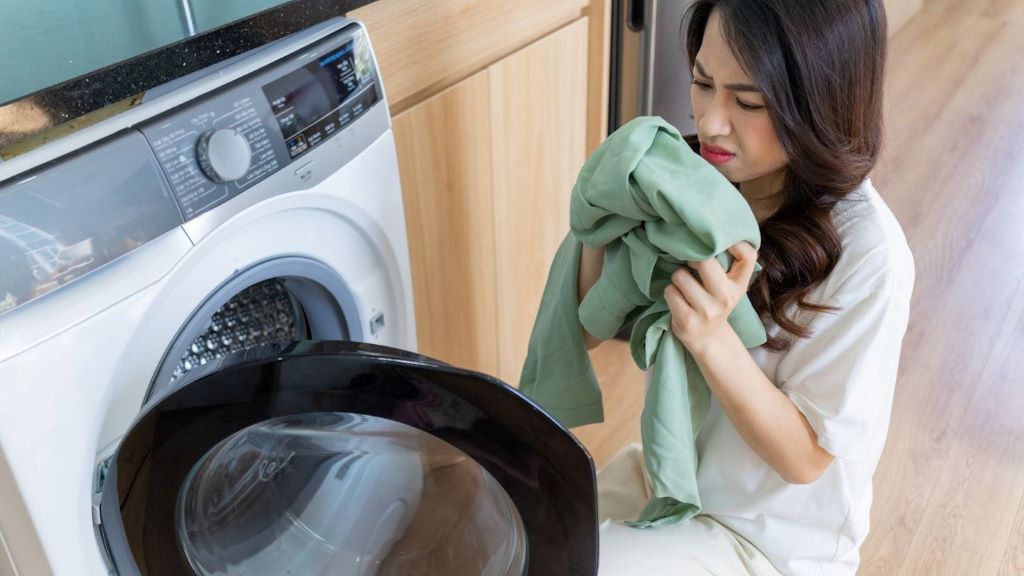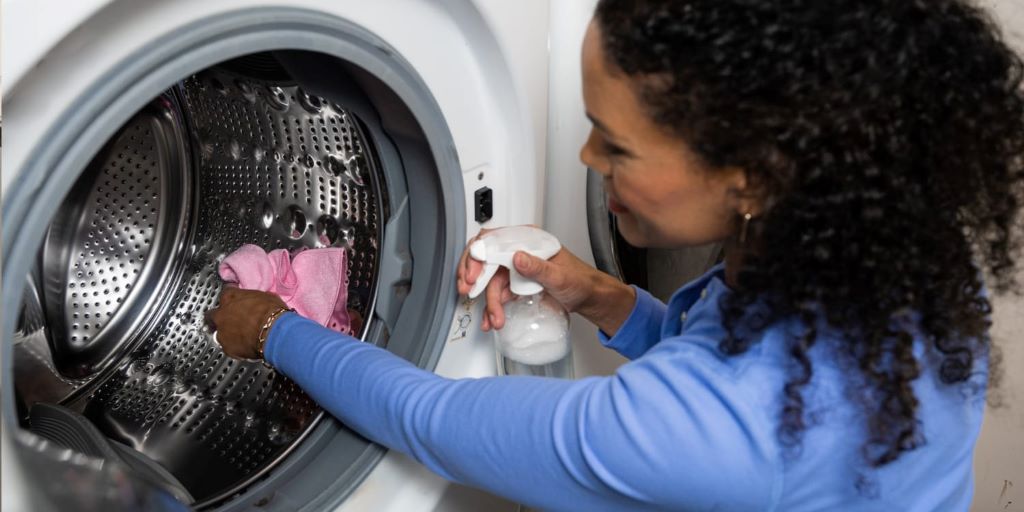Why do clothes smell bad after washing? Laundry is supposed to leave clothes feeling fresh and smelling clean. Yet, many people face the frustrating problem of their clothes still smelling unpleasant after washing. So, why do my clothes smell bad after washing? This common issue stems from a mix of avoidable mistakes and underlying problems with your washing routine.
In this article, we’ll dive into the root causes, backed by expert opinions and scientific reasoning. We’ll also provide practical solutions to ensure your laundry always smells as fresh as it looks. Plus, discover essential tips like how to explore Jagbuzz for more helpful hacks.
Understanding the Problem: Why Clothes Smell After Washing
Many assume that a clean wash automatically means fresh-smelling clothes. But lingering odors post-wash suggest otherwise. Let’s explore the primary reasons for this conundrum.
Detergent Residue on Clothes
If your detergent isn’t rinsing out properly, it could be the culprit. Soap buildup creates a sticky residue that traps bacteria and dirt, leading to foul odors. Overloading the washing machine is often the cause, as water and detergent don’t circulate evenly.
Bacterial Growth in Washing Machines
Washing machines are breeding grounds for bacteria and mold, especially front-load washers. A study by NSF International found that 60% of washing machines contain some level of fecal bacteria, which can transfer to clothing during the wash.
Using the Wrong Detergent
Not all detergents are created equal. Using a product unsuitable for your water type or fabric can fail to clean your clothes effectively, leaving behind unpleasant smells.
How Washing Habits Contribute to Smelly Clothes
Bad laundry habits play a major role in perpetuating odors. From improper drying techniques to ignoring machine maintenance, let’s dissect these habits.
Leaving Clothes in the Washer for Too Long
Forgetfulness is a common mistake. When clothes sit damp in the washer, they become a perfect environment for bacteria and mildew to thrive, causing musty odors.
Skipping Regular Washer Maintenance
Washing machines need cleaning, just like any other appliance. Neglecting this leads to buildup in the drum, hoses, and seals, contaminating your laundry.
Using Fabric Softeners Excessively
While fabric softeners promise a fresh scent, overuse can create a waxy coating on clothes that traps odors and moisture, worsening the problem over time.
Solutions: Fixing Smelly Laundry Once and for All
Now that we’ve identified the causes, it’s time to tackle the issue. These solutions ensure fresh-smelling clothes after every wash.
Clean Your Washing Machine Regularly
Run a cleaning cycle with hot water, white vinegar, or a commercial washing machine cleaner monthly. Pay extra attention to the rubber gasket in front-load machines, as it often harbors mold.
Use the Right Detergent for Your Needs
Choose detergents based on your water type—soft or hard—and fabric type. Enzyme-based detergents are especially effective for breaking down sweat and food stains.
Don’t Overload the Washer
Give your clothes enough space to move around freely. This ensures proper water circulation and thorough rinsing, eliminating detergent residue and odors.
Tips for Odor-Free Laundry Routine
Adopting a few extra habits can prevent odors from returning. These tips provide an additional layer of protection for your laundry.
Air Dry Whenever Possible
Sunlight is a natural disinfectant. Hanging clothes outside not only dries them thoroughly but also kills bacteria that thrive in damp environments.
Avoid Overusing Fabric Softeners
Instead of softeners, consider adding a cup of white vinegar to the rinse cycle. It neutralizes odors and softens clothes naturally.
Repair Damaged Clothing Promptly
Holes in clothing can trap dirt and bacteria, which leads to stubborn odors. If you’ve ever wondered about how to fix a hole in knitting, tackling these repairs promptly can prevent odor buildup.
The Role of External Factors in Smelly Laundry
Sometimes, it’s not just your washing machine or habits to blame. External factors like water quality and humidity also contribute.
Hard Water and Odors
Hard water contains minerals that bind to detergent, reducing its cleaning efficiency. A water softener or hard-water-specific detergent can combat this.
High Humidity Levels
In humid areas, clothes take longer to dry, increasing the chance of mold and mildew growth. Investing in a dehumidifier for your laundry area can help.
You Might Enjoy: How to Style a Long Wool Coat for Women
Expert Opinions on Smelly Laundry
Experts emphasize that solving smelly laundry requires understanding the interplay between detergent, water, and machine hygiene. Dr. Charles Gerba, a microbiologist, states that washing at higher temperatures can kill odor-causing bacteria. Meanwhile, professional cleaners recommend periodic machine maintenance for long-term freshness.
Conclusion
Smelly clothes after washing are a frustrating problem but entirely fixable with the right approach. From maintaining your washing machine to improving your laundry habits, these solutions tackle the issue at its roots. By making simple adjustments, you can ensure your laundry smells fresh every time.





